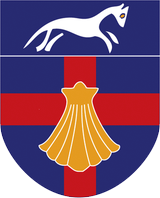Computing
Intent
At Radley CE Primary School, our computing curriculum allows children to gain the knowledge, skills and understanding that they need to become active participants in a digital world, both now and in their future lives.
Technology plays an important and increasing role in children’s lives. The computing curriculum equips children to understand the potential of technology in their future lives and workplaces. The curriculum is knowledge-rich but also develops children’s skills: both knowledge and skills are needed for children to be able to make a positive contribution to society. In addition, the computing curriculum develops children’s ability to effectively communicate their understanding, using subject-specific vocabulary.
Online safety is an important aspect of the computing curriculum. Children are taught to understand the challenges that technology can bring, and to think about the consequences of their actions. Children are also taught where to seek support and advice when needed. We want children to make positive choices about how and when to use technology, recognising the responsibilities of being digital citizens.
The study of computer science, which is central to the computing curriculum, gives children an understanding of computation, digital systems and programming. Computing skills are also embedded across the wider curriculum, as children develop their ideas and express themselves creatively. Additionally, technology is also used to help children to overcome barriers to accessing their learning.
In these ways, through the computing curriculum, we intend to empower our children to become independent, confident, digital citizens.
Implementation
Computing is taught at Radley Primary both in discrete weekly lessons and through the development of skills in other curriculum areas.
In key stages 1 and 2, we follow the Teach Computing curriculum which covers the National Curriculum and has been devised by experts from the National Centre for Computing Education in conjunction with the DfE. This is covered on a two-yearly rolling programme. The Teach Computing curriculum is structured into units for each year group, and each unit is broken down into lessons. Units can generally be taught in any order, with the exception of programming, where concepts and skills rely on prior knowledge and experiences.
Units are based on the same themes each year:
- computing systems and networks
- creating media (2 units)
- programming (2 units)
- data and information
Because children revisit the same themes every year, they make connections and build on their learning. This approach provides a spiral curriculum, with a progression of knowledge and skills across year groups and key stages.
Computing skills are also embedded through lessons in other curriculum areas. Through content creation and using data and information, children work creatively. For example, Year 3 and 4 children may use the internet to research volcanoes during a geography lesson and then create a website about volcanoes during literacy lessons.Computing skills are also embedded through lessons in other curriculum areas. Through content creation and using data and information, children work creatively. For example, children may use the internet to research during a geography lesson and then create a website about their findings. In addition, children use iPads and Chromebooks as tools to help them practise their skills in literacy and maths.
Online safety is taught systematically using resources from Project Evolve, which is based on Education for a Connected World. Additional time is given to online safety during Anti-Bullying Week and Safer Internet Day.
Impact
By the time children leave Radley CE Primary School they will:
- be confident, independent digital citizens
- be able to choose when and how to use technology to carry out a task
- enjoy using computational thinking to solve problems
- express themselves using technology
- publish their work and celebrate their own and others’ achievements
- understand how to make responsible choices and use technology safely
- reflect on how computing can impact their learning and wellbeing
Children’s progress in computing is formatively assessed against the objectives in Teach Computing. Following each unit, teachers assess children against the key knowledge and skills, linked to the national curriculum, that have been covered. Progress is evidenced through photographs of children’s learning in computing, and through children’s work, which is either printed or saved on Google Classroom and elsewhere.
The development of children’s knowledge and skills will enable them not only to meet the requirements of the National Curriculum but also to enjoy using technology to develop ideas and express themselves safely and creatively as responsible digital citizens.Poster for Children about Online Safety




